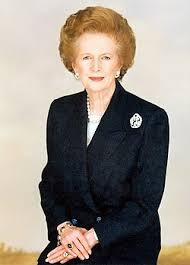Margaret Thatcher: The Iron Lady Who Changed Britain

The Legacy of Margaret Thatcher
Margaret Thatcher, the first female Prime Minister of the United Kingdom, served from 1979 to 1990, a tenure that greatly transformed British politics and society. Her term, often marked by economic reforms and unwavering leadership style, has made her a key figure in discussions about political leadership and policy innovations.
The Era of Change
Known as the ‘Iron Lady,’ Thatcher was a pivotal character during a time of deep economic troubles in the UK. When she took office, the nation was grappling with high inflation, unemployment, and an economy that appeared stagnant. Thatcher’s government implemented a series of radical economic policies that focused on reducing the power of trade unions, privatising state-owned industries, and implementing tax cuts aimed at stimulating economic growth.
Controversial Policies
While her policies elicited admiration from business leaders and some economists who credit her for revitalising the UK economy, they also sparked significant protests and opposition from the public, particularly among the working class. The closure of coal mines and the reduction of manufacturing jobs were particularly contentious and led to large-scale strikes, such as the miners’ strike of 1984-1985, which highlighted the societal divides during her tenure.
Foreign Policy and Global Impact
Internationally, Thatcher was known for her strong stances against communism and her close relationship with US President Ronald Reagan. Her support for military intervention in the Falklands War in 1982 boosted her popularity at home and solidified her reputation as a decisive leader in global affairs. The end of the Cold War saw her advocating for a strong NATO, reinforcing Western alliances against Soviet influence.
End of an Era
Thatcher’s time in office eventually came to an end when her poll tax reform met with fierce backlash, leading to a decline in popularity and her eventual resignation in 1990. Despite her controversial legacy, her influence continues to shape discussions around economic policy and government intervention.
Conclusion
Margaret Thatcher remains a complex figure in British history—admired by many for her economic reforms and leadership style, while simultaneously criticised for the social impact of her policies. Her legacy invites ongoing debate about the role of government in economic affairs and the balance of power between political ideals and societal welfare. As the UK continues to navigate its post-Brexit landscape, lessons drawn from Thatcher’s governance are more relevant than ever for current and future leaders.








